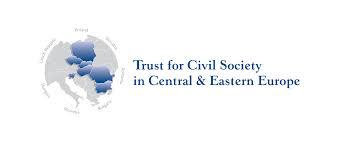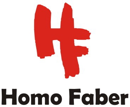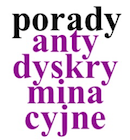Strona główna > Projekty > Zrealizowane > STRAŻNICTWO profesjonalnie i trwale w interesie publicznym
Systemic project 2014-2016
WATCHDOGS – professional and sustainable
‘Supreme power ... shall be vested in the Nation’ as stated in Article 4 of the Constitution of the Republic of Poland. Yet, to responsibly cooperate in governing the state it is necessary to know how it works – to know its strong and weak points and it is this gaining knowledge of the workings of government that we call civic oversight or watchdogging.
In March 2014 with financial support from a Norwegian and European Economic Area funds, five organisations began a systemic project called WATCHDOGS– Professional and Sustainable for the Public Interest. The stated aim is to strengthen watchdog initiatives over a two-year period of action. This consists of both civil organisations involved in the daily monitoring of public institutions as well as individuals engaged in a similar mission in their own local communities.
‘Over one hundred NGOs and individuals will receive direct support. We have analysed their needs and from this produced an offer’, explains Katarzyna Batko-Tołuć from Citizens Network Watchdog Poland – originator of the concept and program supervisor of this initiative. We have invited some excellent partners: the Centre for Citizenship Education, Court Watch Poland Foundation, Helsinki Foundation for Human Rights and Homo Faber Association.
Watchdogging for all
Today civic oversight is sometimes considered to be the work of specialised civil organisations. Through this systemic project we want to change that notion. A broadly-based information campaign intends to inform that watchdogging can be a normal element in the functioning of society. ‘If we’re talking about a response, then each of us, seeing some kind of irregularity or an abuse in the workings of public institutions, would be interested in finding out why, proposing a solution or looking for someone who could help to improve the state of affairs’, explains Katarzyna Batko-Tołuć.
For not Against
Standards are also important. Civic oversight is not a way to punish civil servants but to work in the interests of the public. Its aim is to defend the rights and support institutions in implementing changes – if changes are necessary. This can sometimes require legal action. However, it is worth asking ourselves where this is taking us. ‘It’s not a coincidence that we emphasise that the right to monitor government derives from our basic rights as citizens and the responsibility which lies with the watchdog, stresses Danuta Przywara from the Helsinki Foundation for Human Rights, jointly-
responsible (through the systemic project) for, amongst others the School for Watchdog Initiatives.
Watchdogging in schools
The Centre for Citizenship Education cares about the attitudes, motivations and knowledge of young, future watchdogs. As part of a pilot watchdog education scheme forty teachers and educational counsellors will be trained. This consists of two lesson plans and a set of ten exercises. It will organise several regional training sessions, preceded by an on-line course. ‘Our proposal is directed at teachers who can determine what is of most interest to upper-secondary school pupils approaching adulthood’, explains Sylwia Żmijewska-Kwiręg from the Centre.
Boosting Power
Mainly intended for those organisations which are already involved in watchdog activities (but also those wishing to adopt them) Court Watch Poland Foundation prepared two to three day workshops entitled School of Excellence where everyone can choose the most interesting for them. ‘We are proposing exchanging skills which will actually enhance the impact of watchdog activities to other watchdogs and individuals wanting to start their own professional watchdogs’, explains Bartosz Pilitowski from the Court Watch Poland Foundation. ‘We planned training covering for example, using methods of social science in conducting monitoring, statistical analysis, crowdsourcing which is based on the activities of mass volunteering, using IT tools, communicating and cooperating with stakeholders and planning and implementing changes. We also want to encourage participants to share their skills with others.’
An advanced group of recipients are also having training cycles based on building the sustainbility of watchdogs. Participants (always a board member and someone responsible for communication) under the supervision of experts analyse key areas for the long-term operation and development of their organisation, incl. abilities to engage supporters (also an aspect of fundraising), activism and advocacy. One of the cycles is addressed to representatives of organisations on the national level, the second for NGOs whose field of action is focused on single towns or regions. ‘In the situation where foreign donors will withdraw from Poland we have to draw on our own resources and work out completely new standards of working’, explains Joanna Gucman-Muż from Citizens Network Watchdog Poland.
And perhaps...?
Local monitoring is a proposal for formal and informal organisations as well as individuals who are working in their own local environments but do not yet have experience in social control. Participants meet for training in Warsaw but in the meantime independently carry out (with the support of experts from Citizens Network) research (monitoring) of a chosen function of government work in their own community. Last year this took the form of sports policy in local communities as well as the allocation of funds for alcohol abuse prevention.
As part of the project a newsletter will be published on the subject of watchdogs and civic oversight so that local authorities will be aware that we are monitoring their work as a way of improving the workings of public institutions and not assume that we are looking for scandal. This is why we will also be organising a cycle of meetings with representatives of both watchdog organisations and public authorities.
1.
School of Excellence. One can choose one or opt for more. Planned topics include using methods of social science in watchdogging, statistical analysis; crowdsourcing, using IT tools and communicating and cooperating with stakeholders. Workshops are held daily. Enrolment dates: from October 2014 to October 2015. For more information and enquiries about enrolment please contact Bartosz Pilitowski, Court Watch Poland Foundation: b.pilitowski@courtwatch.pl.
2.
Capacity and Sustainability Building for Experienced Watchdogs. A series of lectures in conjunction with several months’ work helping to draw up and implement your own strategy for engaging supporters, including financial aspects and for example, working with volunteers. Two series are planned, for national organisations as well as local ones.
the ‘country cycle’: information and enrolment – Joanna Gucman: joanna.gucman@siecobywatelska
the ‘city cycle’: Kinga Kulik, Homo Faber Association: kinga.kulik@hf.org.pl
3.
Preparation for teaching watchdogging in schools as an element of practical legal education is a proposal of the Centre for Citizenship Education intended for teachers of social studies and subjects with elements of legal education in upper-secondary schools as well as methodologists. Amongst others, an on-line course (Sep.2014-Jan.2015) is also planned as well as full-time training for teachers Mar. 2015) and methodologists (Jun. 2015) and regional training (Sep.-Dec. 2015).
(20th-22nd Mar. 2015) and methodologists (Jun. 2015) and regional training (Sep.-Dec. 2015).
4.
On Guard! – we recommend this full-time, on-line course to organisations interested in thorough watchdogging preparation. This cycle has been worked out in co-operation with the Helsinki Foundation for Human Rights as well as with the Homo Faber Association and includes on-line modules, three weekend training sessions as well as drawing up and implementing a pilot monitoring.
Information as well as enrolment: for national organisations – Krzysztof Łoś, krzysztof.los@siecobywatelska.pl and for local actions – Kinga Kulik, kinga.kulik@hf.org.pl
5.
An express school in watchdogging theory and practice is to take part during at least two local monitorings. Participants meet twice for training in Warsaw and in the meantime conduct research on a chosen function of government in their local community. The subject will be adjusted to the wishes of potential participants and in recent years has included, amongst others allocation of funds for alcohol treatment but also sport. enrolment: for the first monitoring (Oct.-Nov.2014) and for the second (Jul. – Aug. 2015). More
information and notification: Agnieszka Zdanowicz, agnieszka.zdanowicz@siecobywatelska.pl
6.
School for Watchdog Initiatives is a cycle of training introducing basic knowledge and skills like controlling the work of local government institutions and thus influence how life in our towns can be improved. Over five weekend meetings experts from Watchdog Citizens Network Poland and the Helsinki Foundation for Human Rights will be together with other experienced participants not only in monitoring but also in work on real change.
Enrolment: Oct.-Nov. 2014.
Information as well as notification: Karol Mojkowski, karol.mojkowski@siecobywatelska.pl
Project co-ordinator: Katarzyna Kołodziejczyk, katarzyna.kolodziejczyk@siecobywatelska.pl
Project supervision: Katarzyna Batko-Tołuć, Programme Director of the Citizens Network Watchdog Poland: katarzyna.batko@siecobywatelska.pl.


Komentarze
WATCHDOGS – professional and sustainable
HF (2014-07-09)Systemic project 2014-2016
WATCHDOGS – professional and sustainable
‘Supreme power ... shall be vested in the Nation’ as stated in Article 4 of the Constitution of the Republic of Poland. Yet, to responsibly cooperate in governing the state it is necessary to know how it works – to know its strong and weak points and it is this gaining knowledge of the workings of government that we call civic oversight or watchdogging.
In March 2014 with financial support from a Norwegian and European Economic Area funds, five organisations began a systemic project called WATCHDOGS– Professional and Sustainable for the Public Interest. The stated aim is to strengthen watchdog initiatives over a two-year period of action. This consists of both civil organisations involved in the daily monitoring of public institutions as well as individuals engaged in a similar mission in their own local communities.
‘Over one hundred NGOs and individuals will receive direct support. We have analysed their needs and from this produced an offer’, explains Katarzyna Batko-Tołuć from Citizens Network Watchdog Poland – originator of the concept and program supervisor of this initiative. We have invited some excellent partners: the Centre for Citizenship Education, Court Watch Poland Foundation, Helsinki Foundation for Human Rights and Homo Faber Association.
Watchdogging for all
Today civic oversight is sometimes considered to be the work of specialised civil organisations. Through this systemic project we want to change that notion. A broadly-based information campaign intends to inform that watchdogging can be a normal element in the functioning of society. ‘If we’re talking about a response, then each of us, seeing some kind of irregularity or an abuse in the workings of public institutions, would be interested in finding out why, proposing a solution or looking for someone who could help to improve the state of affairs’, explains Katarzyna Batko-Tołuć.
For not Against
Standards are also important. Civic oversight is not a way to punish civil servants but to work in the interests of the public. Its aim is to defend the rights and support institutions in implementing changes – if changes are necessary. This can sometimes require legal action. However, it is worth asking ourselves where this is taking us. ‘It’s not a coincidence that we emphasise that the right to monitor government derives from our basic rights as citizens and the responsibility which lies with the watchdog, stresses Danuta Przywara from the Helsinki Foundation for Human Rights, jointly-
responsible (through the systemic project) for, amongst others the School for Watchdog Initiatives.
Watchdogging in schools
The Centre for Citizenship Education cares about the attitudes, motivations and knowledge of young, future watchdogs. As part of a pilot watchdog education scheme forty teachers and educational counsellors will be trained. This consists of two lesson plans and a set of ten exercises. It will organise several regional training sessions, preceded by an on-line course. ‘Our proposal is directed at teachers who can determine what is of most interest to upper-secondary school pupils approaching adulthood’, explains Sylwia Żmijewska-Kwiręg from the Centre.
Boosting Power
Mainly intended for those organisations which are already involved in watchdog activities (but also those wishing to adopt them) Court Watch Poland Foundation prepared two to three day workshops entitled School of Excellence where everyone can choose the most interesting for them. ‘We are proposing exchanging skills which will actually enhance the impact of watchdog activities to other watchdogs and individuals wanting to start their own professional watchdogs’, explains Bartosz Pilitowski from the Court Watch Poland Foundation. ‘We planned training covering for example, using methods of social science in conducting monitoring, statistical analysis, crowdsourcing which is based on the activities of mass volunteering, using IT tools, communicating and cooperating with stakeholders and planning and implementing changes. We also want to encourage participants to share their skills with others.’
An advanced group of recipients are also having training cycles based on building the sustainbility of watchdogs. Participants (always a board member and someone responsible for communication) under the supervision of experts analyse key areas for the long-term operation and development of their organisation, incl. abilities to engage supporters (also an aspect of fundraising), activism and advocacy. One of the cycles is addressed to representatives of organisations on the national level, the second for NGOs whose field of action is focused on single towns or regions. ‘In the situation where foreign donors will withdraw from Poland we have to draw on our own resources and work out completely new standards of working’, explains Joanna Gucman-Muż from Citizens Network Watchdog Poland.
And perhaps...?
Local monitoring is a proposal for formal and informal organisations as well as individuals who are working in their own local environments but do not yet have experience in social control. Participants meet for training in Warsaw but in the meantime independently carry out (with the support of experts from Citizens Network) research (monitoring) of a chosen function of government work in their own community. Last year this took the form of sports policy in local communities as well as the allocation of funds for alcohol abuse prevention.
As part of the project a newsletter will be published on the subject of watchdogs and civic oversight so that local authorities will be aware that we are monitoring their work as a way of improving the workings of public institutions and not assume that we are looking for scandal. This is why we will also be organising a cycle of meetings with representatives of both watchdog organisations and public authorities.
1.
School of Excellence. One can choose one or opt for more. Planned topics include using methods of social science in watchdogging, statistical analysis; crowdsourcing, using IT tools and communicating and cooperating with stakeholders. Workshops are held daily. Enrolment dates: from October 2014 to October 2015. For more information and enquiries about enrolment please contact Bartosz Pilitowski, Court Watch Poland Foundation: b.pilitowski@courtwatch.pl.
2.
Capacity and Sustainability Building for Experienced Watchdogs. A series of lectures in conjunction with several months’ work helping to draw up and implement your own strategy for engaging supporters, including financial aspects and for example, working with volunteers. Two series are planned, for national organisations as well as local ones.
the ‘country cycle’: information and enrolment – Joanna Gucman: joanna.gucman@siecobywatelska
the ‘city cycle’: Kinga Kulik, Homo Faber Association: kinga.kulik@hf.org.pl
3.
Preparation for teaching watchdogging in schools as an element of practical legal education is a proposal of the Centre for Citizenship Education intended for teachers of social studies and subjects with elements of legal education in upper-secondary schools as well as methodologists. Amongst others, an on-line course (Sep.2014-Jan.2015) is also planned as well as full-time training for teachers Mar. 2015) and methodologists (Jun. 2015) and regional training (Sep.-Dec. 2015).
(20th-22nd Mar. 2015) and methodologists (Jun. 2015) and regional training (Sep.-Dec. 2015).
4.
On Guard! – we recommend this full-time, on-line course to organisations interested in thorough watchdogging preparation. This cycle has been worked out in co-operation with the Helsinki Foundation for Human Rights as well as with the Homo Faber Association and includes on-line modules, three weekend training sessions as well as drawing up and implementing a pilot monitoring.
Information as well as enrolment: for national organisations – Krzysztof Łoś, krzysztof.los@siecobywatelska.pl and for local actions – Kinga Kulik, kinga.kulik@hf.org.pl
5.
An express school in watchdogging theory and practice is to take part during at least two local monitorings. Participants meet twice for training in Warsaw and in the meantime conduct research on a chosen function of government in their local community. The subject will be adjusted to the wishes of potential participants and in recent years has included, amongst others allocation of funds for alcohol treatment but also sport. enrolment: for the first monitoring (Oct.-Nov.2014) and for the second (Jul. – Aug. 2015). More
information and notification: Agnieszka Zdanowicz, agnieszka.zdanowicz@siecobywatelska.pl
6.
School for Watchdog Initiatives is a cycle of training introducing basic knowledge and skills like controlling the work of local government institutions and thus influence how life in our towns can be improved. Over five weekend meetings experts from Watchdog Citizens Network Poland and the Helsinki Foundation for Human Rights will be together with other experienced participants not only in monitoring but also in work on real change.
Enrolment: Oct.-Nov. 2014.
Information as well as notification: Karol Mojkowski, karol.mojkowski@siecobywatelska.pl
***
Project co-ordinator: Katarzyna Kołodziejczyk, katarzyna.kolodziejczyk@siecobywatelska.pl
Project supervision: Katarzyna Batko-Tołuć, Programme Director of the Citizens Network Watchdog Poland: katarzyna.batko@siecobywatelska.pl.
Financed by the EEA and Norwegian Fund Grants (Citizens for Democracy) and Trust for Civil Society in central and Eastern Europe


Komentarze
- Brak komentarzy








 Jeśli chcesz być informowany/a na bieżąco o wydarzeniach prosto z Homo Faber, zapisz się do naszego newslettera.
Jeśli chcesz być informowany/a na bieżąco o wydarzeniach prosto z Homo Faber, zapisz się do naszego newslettera.





 Portal na którym w tej chwili znajdujesz się został wykonany dzięki dotacji Unii Europejskiej - Środki Przejściowe 2005 (TF2005/017-488.01.01.01) - w ramach projektu Akademia Obywatelska IV realizowanego w roku 2008. Portal, Akademia HF oraz pismo Opornik są jego kontynuacją.
Portal na którym w tej chwili znajdujesz się został wykonany dzięki dotacji Unii Europejskiej - Środki Przejściowe 2005 (TF2005/017-488.01.01.01) - w ramach projektu Akademia Obywatelska IV realizowanego w roku 2008. Portal, Akademia HF oraz pismo Opornik są jego kontynuacją.